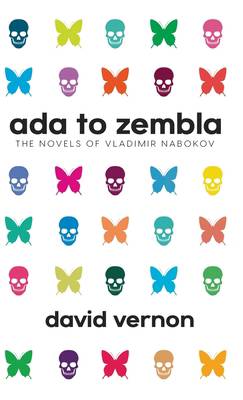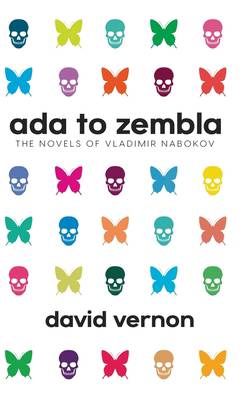
- Retrait gratuit dans votre magasin Club
- 7.000.000 titres dans notre catalogue
- Payer en toute sécurité
- Toujours un magasin près de chez vous
- Retrait gratuit dans votre magasin Club
- 7.000.0000 titres dans notre catalogue
- Payer en toute sécurité
- Toujours un magasin près de chez vous
Description
'Nabokov's novels are playgrounds of perfection and dungeons of despair'
Exile, émigré and refugee, Vladimir Nabokov (1899-1977) was buffeted by the tides of his times, from the Russian Revolution to the rise of Hitler. But he converted that personal anarchy into a seductive, often controversial, art which searches for meaning amid cruelty and loss. In Ada to Zembla: The Novels of Vladimir Nabokov, David Vernon explores the works of one of the twentieth century's key writers: hilarious, exquisite but complex worlds which challenge our complacency and interrogate our perception of beauty, reality and identity. Lucid and lively, this is the first book in English to devote a chapter to each of Nabokov's novels, in both Russian and English - from his debut, Mary, to the posthumous Laura. Supplementary essays discuss Speak, Memory and other non-fiction, plus the short stories, poetry and plays, as well as Nabokov's lifelong engagement with chess and butterflies. Ada to Zembla offers keys to Nabokov's many locked doors, revealing not only the layers and networks of his novels but their emotional depth and playful sport.Spécifications
Parties prenantes
- Auteur(s) :
- Editeur:
Contenu
- Nombre de pages :
- 330
- Langue:
- Anglais
Caractéristiques
- EAN:
- 9781739136109
- Date de parution :
- 08-11-22
- Format:
- Livre relié
- Format numérique:
- Genaaid
- Dimensions :
- 140 mm x 216 mm
- Poids :
- 566 g

Les avis
Nous publions uniquement les avis qui respectent les conditions requises. Consultez nos conditions pour les avis.






